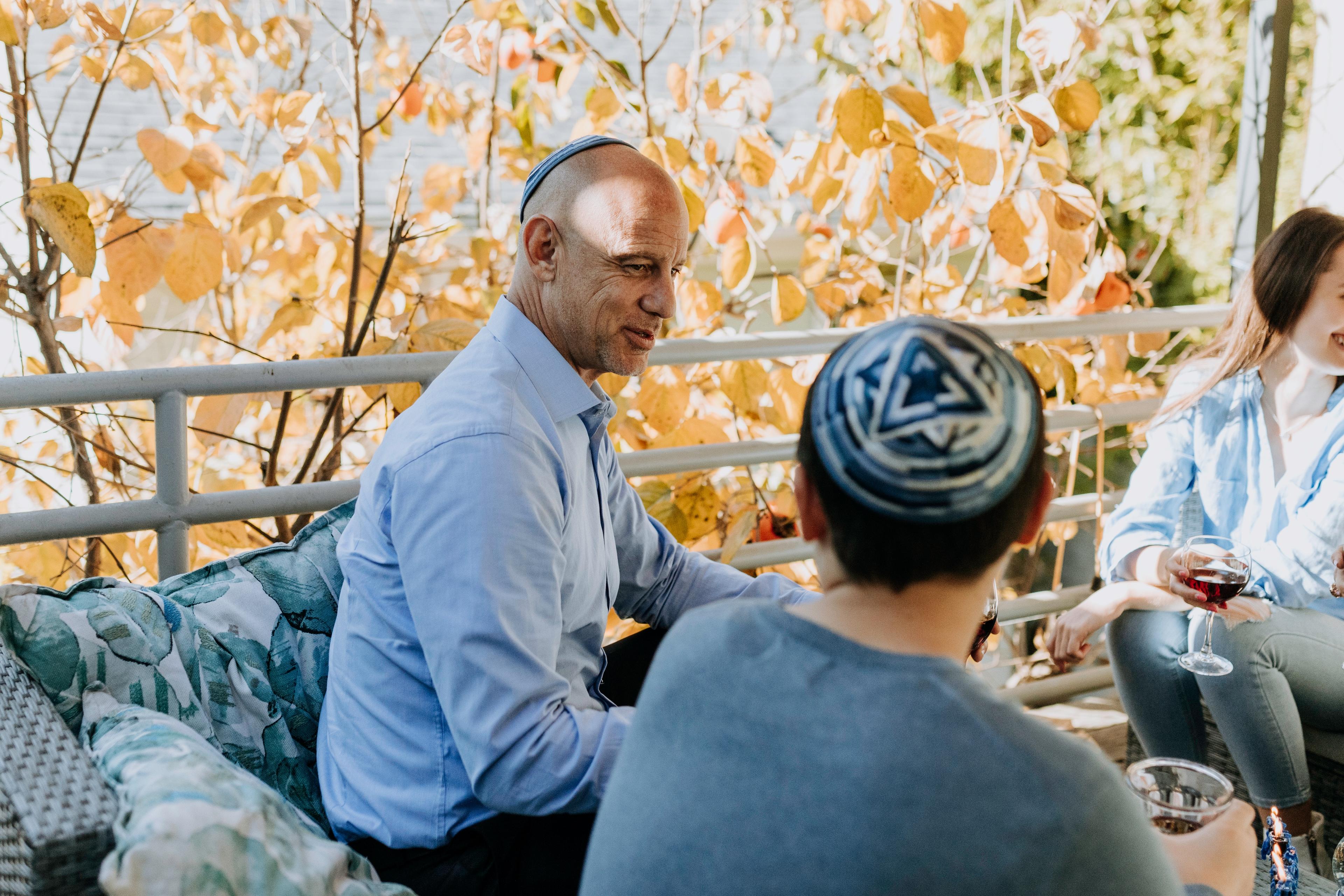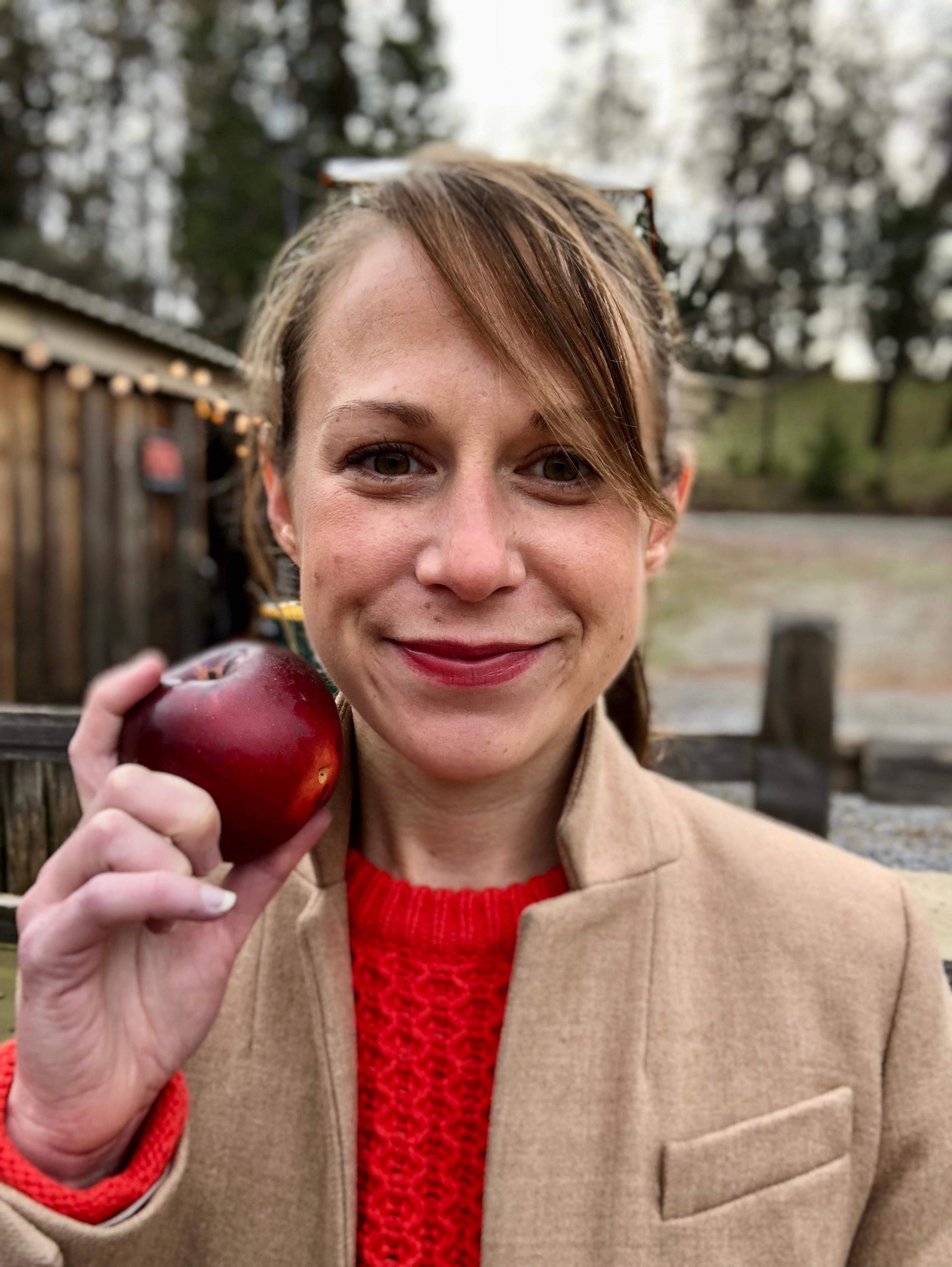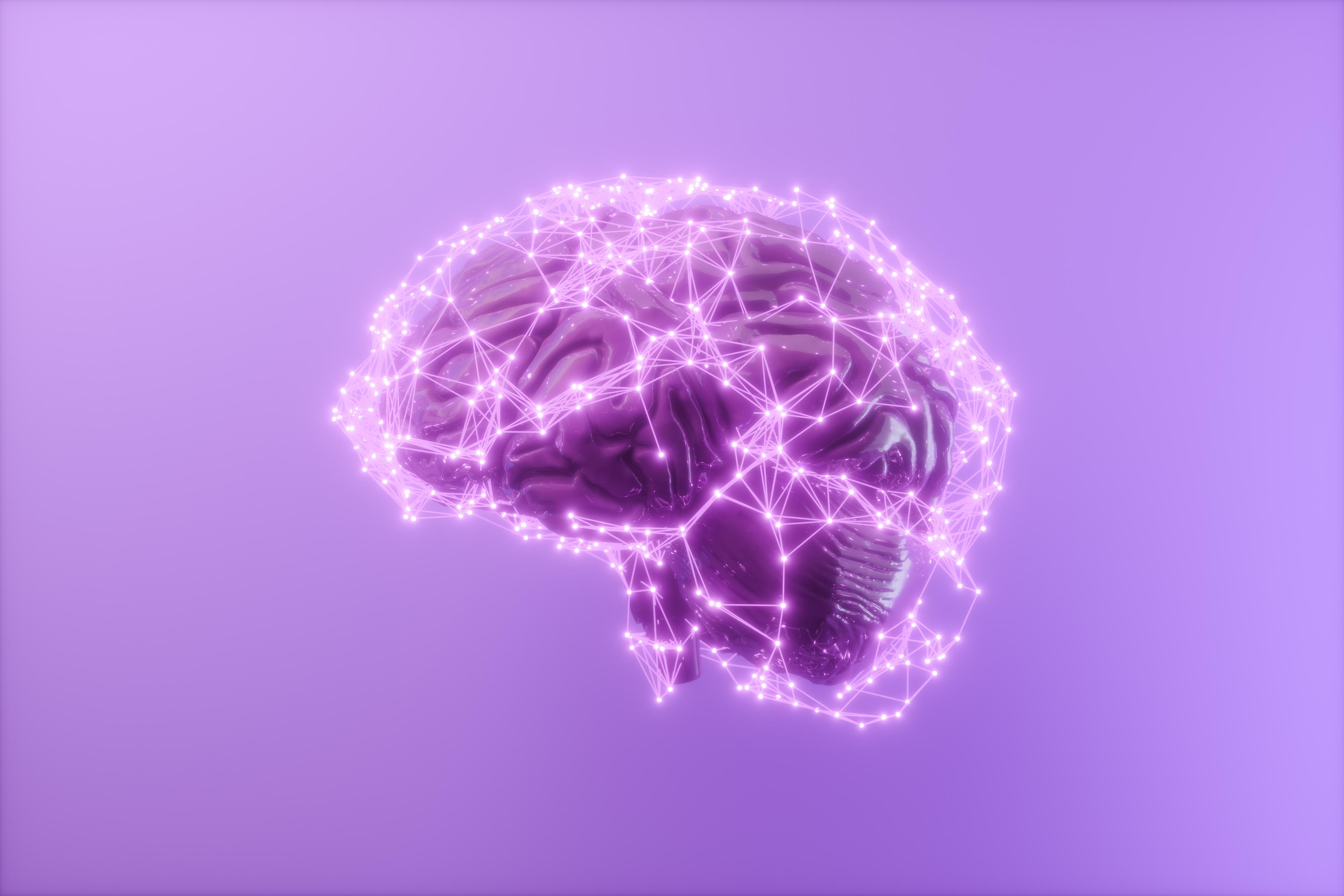
As summer winds down and fall approaches, the holiest days of the Jewish calendar are upon us: Rosh Hashanah and Yom Kippur. The former, known as the Jewish New Year, is typically marked by festive customs and symbolic feasts. The latter is the “Day of Atonement”, a somber day of reflection and praying for forgiveness, perhaps best known for the fast that accompanies it. Jewish people who observe Yom Kippur typically eat their last meal with friends and family before sundown on the eve of Yom Kippur, and then abstain from all food and beverages until sunset of the following day.
While Yom Kippur is often referred to as the holiest day of the year for Jewish people, it’s a day that can be complex, challenging, and even triggering for those with eating disorders. Equip’s Director of Marketing, Lauren Gerber, knows this first-hand. “While Yom Kippur, the Jewish day of atonement, is intended to be solemn in its focus on personal reflection, it was actually solemn for me because the fasting robbed me, as eating disorders tend to do, of the beauty of a meaningful day,” she says.
Eating disorders exist in the Jewish community
Gerber certainly isn’t alone. As we know, eating disorders do not discriminate, and they affect individuals of all ages, races, ethnicities, genders, religions, etc. As the National Eating Disorder Association (NEDA) notes, “eating disorders, as with any mental illness, show no boundaries between demographics, with several studies indicating a rise in the problem for Jewish women.”
While there’s no single reason for the statistics, a report in the Washington Times suggested that in Orthodox communities in particular, there may be a reluctance to acknowledge eating disorders due to the ongoing stigma of mental illness (a pervasively taboo topic in many cultures). One study found that 25 percent of Jewish girls at a Toronto school suffered from eating disorders that merited treatment, compared with 18 percent of non-Jewish girls.
While there is no evidence that fasting during the High Holidays contributes to eating disorders, some individuals have experienced Yom Kippur to be particularly challenging.
"Fasting and the High Holidays has absolutely triggered disordered thoughts and behaviors for myself and many close to me,” says Equip peer mentor, Sara Plawker. “As someone who has been working on recovery imperfectly for five years — and struggled with mental health and Jewish identity for the 28 years I’ve been alive — my interpretation of fasting as part of Judaism is ever-evolving.”
Where fasting fits into Judaism — and when it is encouraged to skipped
As mentioned in a New York Times piece, there can be an unfortunate misinterpretation of Jewish law that may lead some individuals with eating disorders to inappropriately justify their behaviors. While fasting is considered a customary practice on holidays like Yom Kippur, abstaining from food for religious purposes, as Jewish law sees it, never takes priority over one’s health.
“Judaism is very clear that literally nothing comes in the way of saving a life — nothing,” explains Rabbi Yakov Saacks, director of the Chai Center in Dix Hills, New York. “Not Kosher, not Yom Kippur, not Shabbat observance. If a baby will be in danger if he gets circumcised — which is a foundational practice in Judaism — then a bris gets pushed off for however long it needs to be. To give a bris to a baby in danger, is considered a terrible sin.”
Rabbi Saacks understands the complexities of eating disorders and their intersection with Judaism in a very personal way. As he wrote in an article for the non-profit, F.E.A.S.T., his daughter suffered from an eating disorder.
“After my daughter got sick, I had to make some hard decisions,” Rabbi Saacks says. “Once I realized that insisting on the Jewish laws on food and eating was an obstacle to her recovery, I let it go. The philosophy here is that only a living person can observe the commandment to fast on Yom Kippur, and if I encourage her or even allow her to fast, which I will do with my other children, then I am an idiot and not righteous at all. Fasting will serve to exacerbate her eating disorder and make her ability to fight to live another day more difficult.”
Gerber also felt that Yom Kippur played a pivotal role in her own eating disorder journey as a Jewish person. “Instead of celebrating—or at least observing—the high holidays, for many years I celebrated—or at least observed—my eating disorder,” she says. “Yom Kippur, and all its praise of food restriction, reinforced the harmful belief that my eating disorder was a badge of honor.”
The freedom to interpret and personalize Jewish traditions
Plawker says that their current views are largely influenced by the philosophy of intuitive eating and the importance of nutrition. Over the course of their recovery, Plawker has developed a deeper understanding of the ways food can affect focus and mental presence, and uses those concepts as foundational elements in their faith. “One of the reasons we fast on Yom Kippur is because the day is so holy that we need to put aside our physical needs in order to nurture our spiritual selves,” she says. “However, within my eating disorder-filled mind, it felt at the time as though my religion, family, and ethnicity were all validating my eating disorder.”
Plawker says that she believes people with eating disorders should avoid fasting. “I believe that it is the Jewish thing to do,” she says. “Yes really! The Talmud [a collection of writing that covers Jewish law and tradition] backs me up. There is a concept in Jewish theology called pikuach nefesh which states that the need to preserve human life overrides every other Jewish commandment. Fasting when you have an eating disorder is not true to our spirit of survival and perseverance that is baked into our bodies through ethnicity and ancestry. Starving ourselves is not Jewish.”
Plawker is adamant, however, that their refusal to participate in fasting in no way compromises or diminishes their faith. “The way I personally accomplish healthy recovered observation of the High Holidays is by surrounding myself with trauma educated, ED-informed, body-positive Jews,” she says. “I am blessed to count many friends and family members in that category, Baruch Hashem [thank God].”
For anyone still struggling to find a similarly supportive and informed Jewish community, Plawker recommends curating your media consumption to cater to those needs. She recommends following eating disorder therapist and Equip advisor Shira Rose, therapist and writer Rachel Otis, and Laur Plawker "who I am blessed to call my sister,” Plawker says.
Plawker plans to commemorate this Yom Kippur in a deeply personal way: out in nature, enjoying homemade Jewish food, nurturing their body while reflecting and repenting on this last year “If you’re a human that struggles with food and diet culture — which virtually everyone is no matter their intersectional identities — you are not alone,” Plawker says. “Now a message specifically for my mishpacha (‘family’ in Hebrew) that struggles with food and body — this is said with love and non-judgment and is my own opinion: our ancestors — my grandmother and yours — did not suffer as they did for you to succumb to diet culture and deadly illnesses like eating disorders. To quote the inimitable Lin Manuel: “the fact that you’re alive is a miracle.” You are enough. To life, to life, l’chaim!”








